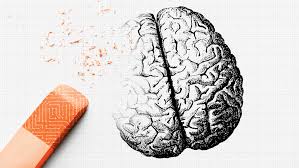Science
Featured
Reliance on ChatGPT Erodes Critical Thinking and Creativity, New MIT Study Suggests
Editor
Jun 22, 2025
min read
6 views

CAMBRIDGE, MA – A recent study from the Massachusetts Institute of Technology (MIT) has raised significant concerns about the cognitive impact of relying on large language models (LLMs) like OpenAI's ChatGPT. The research, which used EEG to monitor brain activity, suggests that using ChatGPT to complete complex tasks may lead to a reduction in critical thinking, creativity, and long-term knowledge retention. The study, authored by researcher Nataliya Kosmyna and her team, involved 54 participants from the Boston area who were tasked with writing a series of SAT-style essays. The subjects were divided into three groups: one using only their own knowledge, one using Google Search for assistance, and one using ChatGPT. Researchers recorded the brain activity of each participant across 32 different regions. The findings, released in June 2025, were striking. The group using ChatGPT exhibited the lowest levels of brain engagement. Their EEGs showed consistently lower activity in brain regions associated with creativity, memory, and executive function. Over the course of the study, the researchers observed that the ChatGPT users became progressively 'lazier', often resorting to simply copying and pasting the AI's output by the final essay. When English teachers assessed the essays, they described those from the ChatGPT group as 'soulless' and lacking in original thought, noting a high degree of similarity between them. In contrast, the group that relied solely on their own minds showed the highest levels of neural connectivity, particularly in the alpha, theta, and delta brain bands, which are linked to idea generation, memory load, and deep semantic processing. This group expressed higher satisfaction with their work and demonstrated a greater sense of ownership over their writing. The Google Search group also showed high levels of brain activity and satisfaction. A particularly telling part of the experiment came when the groups were asked to rewrite one of their essays. This time, the ChatGPT group had to do it from memory without the AI, while the 'brain-only' group was given access to ChatGPT. The original ChatGPT users struggled to recall the content of the essays they had submitted, and their brain scans indicated a bypassing of deep memory processes. 'The task was executed, and you could say that it was efficient and convenient,' noted Kosmyna, but the learning process appeared to be significantly compromised. The study, while not yet peer-reviewed, has been released to urgently address the rapid integration of AI into education and professional workflows. Kosmyna warns that an overreliance on LLMs could have 'unintended psychological and cognitive consequences,' especially for younger users whose brains are still developing. The study adds a critical, data-driven perspective to the ongoing debate about the role of AI in society. While other studies have pointed to productivity gains from using tools like ChatGPT, this MIT research provides cautionary evidence that such efficiency may come at the cost of fundamental cognitive skills. It suggests that as companies look to automate entry-level tasks, they may inadvertently be hampering the development of critical thinking and problem-solving abilities in their future workforce.
Editor
League Manager Editorial Team





Leave a Comment